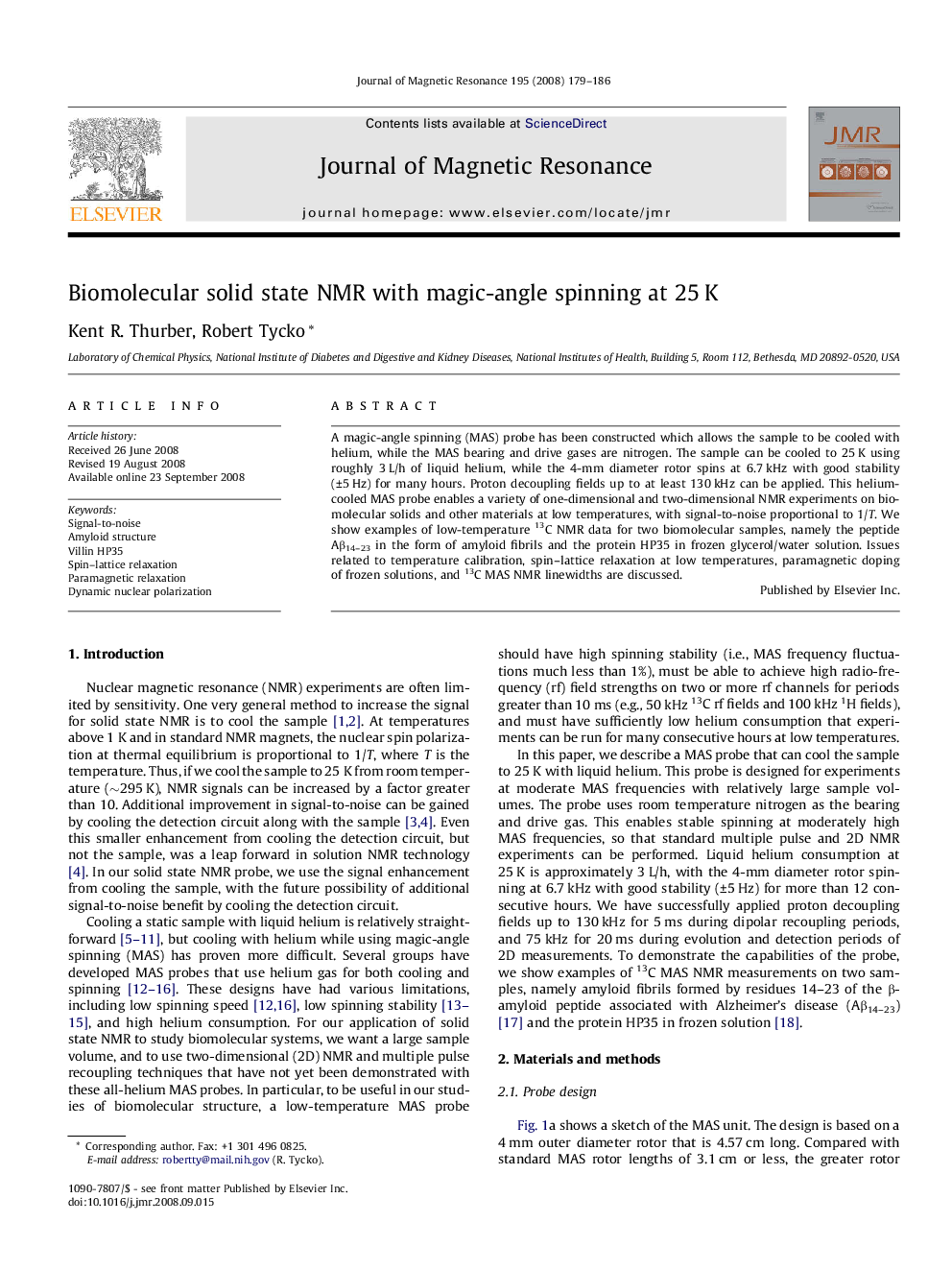| Article ID | Journal | Published Year | Pages | File Type |
|---|---|---|---|---|
| 5407070 | Journal of Magnetic Resonance | 2008 | 8 Pages |
Abstract
A magic-angle spinning (MAS) probe has been constructed which allows the sample to be cooled with helium, while the MAS bearing and drive gases are nitrogen. The sample can be cooled to 25 K using roughly 3 L/h of liquid helium, while the 4-mm diameter rotor spins at 6.7 kHz with good stability (±5 Hz) for many hours. Proton decoupling fields up to at least 130 kHz can be applied. This helium-cooled MAS probe enables a variety of one-dimensional and two-dimensional NMR experiments on biomolecular solids and other materials at low temperatures, with signal-to-noise proportional to 1/T. We show examples of low-temperature 13C NMR data for two biomolecular samples, namely the peptide Aβ14-23 in the form of amyloid fibrils and the protein HP35 in frozen glycerol/water solution. Issues related to temperature calibration, spin-lattice relaxation at low temperatures, paramagnetic doping of frozen solutions, and 13C MAS NMR linewidths are discussed.
Keywords
Related Topics
Physical Sciences and Engineering
Chemistry
Physical and Theoretical Chemistry
Authors
Kent R. Thurber, Robert Tycko,
